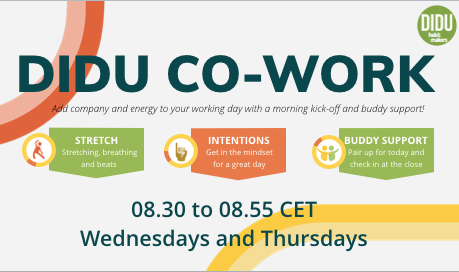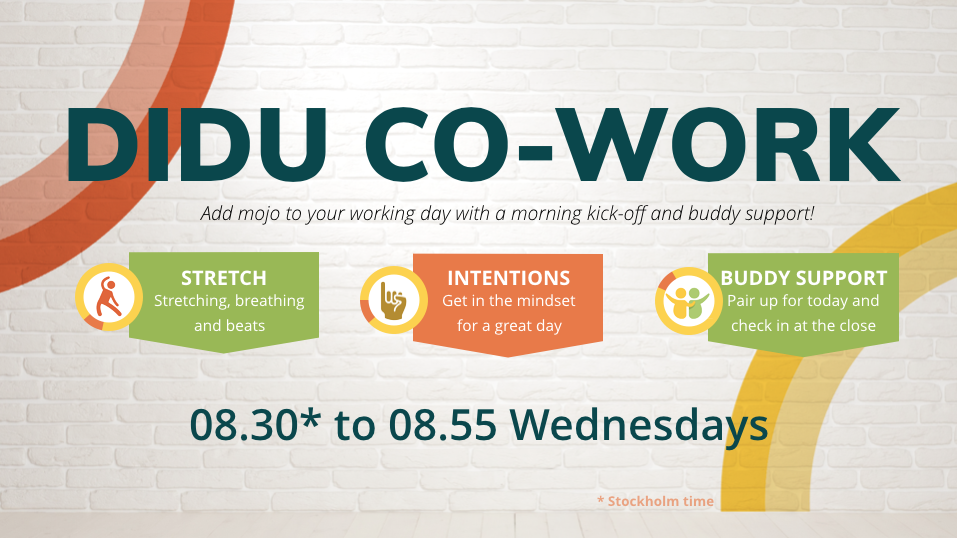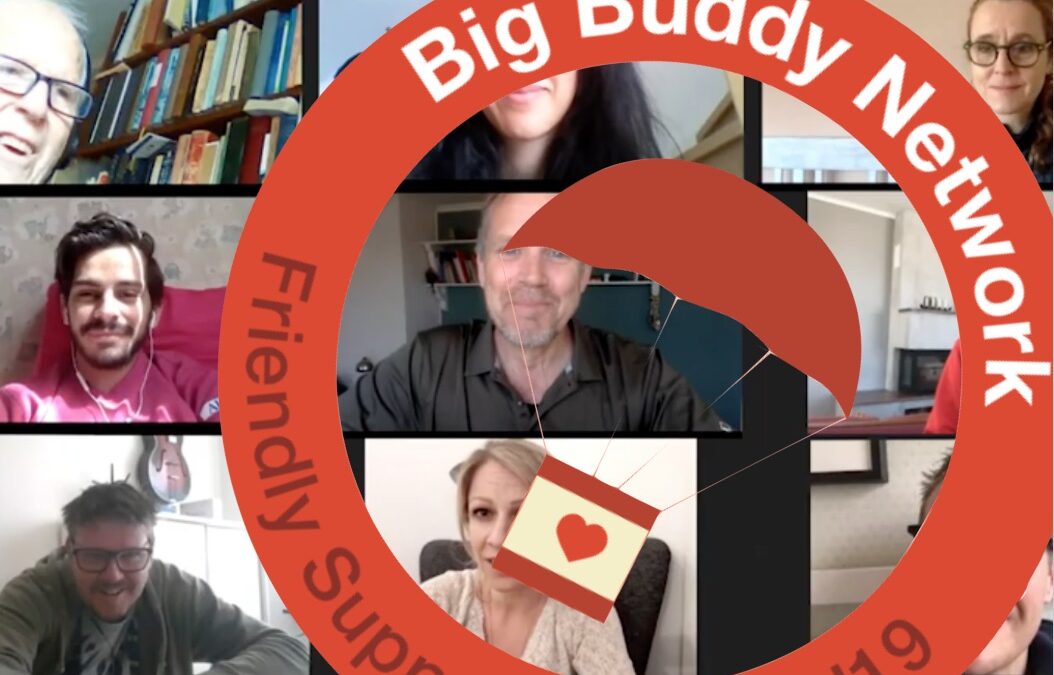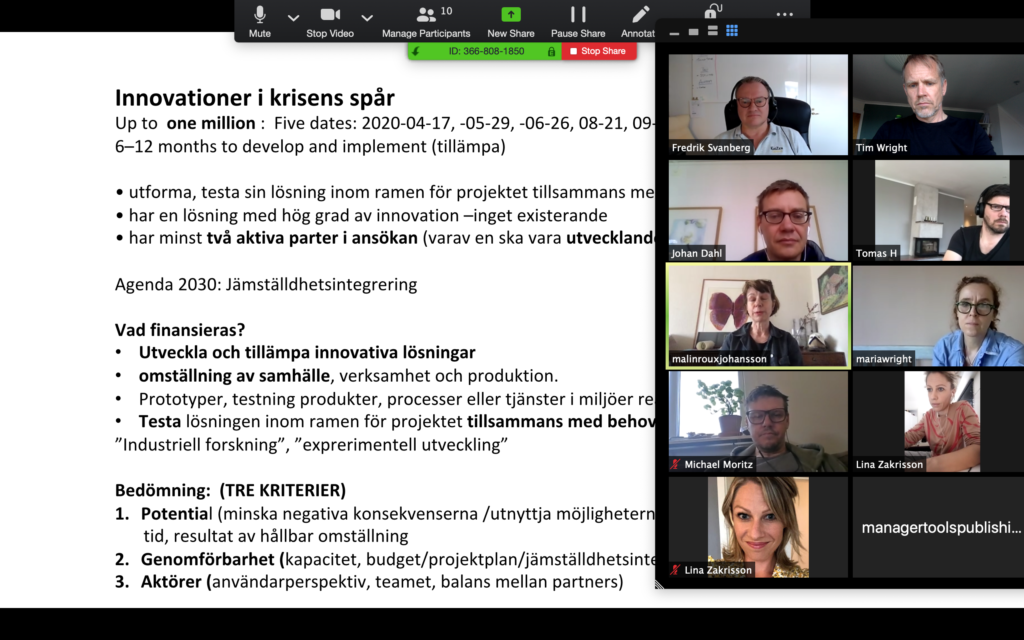
An accountability buddy to support you to keep your habits at 100% – but how?
It’s so simple to set up a buddy system. It makes a huge difference in follow-through on important habits and goals. Organisations from Apple to the US Military use them.
Yet, relatively few use a buddy process to get habits established.
Why is that? And how do you do it anyway?
In this article
1. A case: From wannabe to sought-after West End producer
2. Two reasons people don’t seek support
-
- Think that knowing and doing are the same thing
- Underestimating the intertia of the status quo
3. Five steps to a buddy system of your own
IN THREE DECADES of using and facilitating buddy systems, I’ve learned there are two reasons that prevent people enrolling support.
Here they are, along with a five-step guide to creating a buddy process with a friend as a way to keep your habits on-track.
But first, a little story about the life-changing difference it can make.
From wannabe to sought-after West End producer
My wife, Mia, tells about the very first time she was first presented with the idea of agreeing with a buddy to stick to a habit each day. It was a Sunday.
“I think I could commit to that until Tuesday,” she said hesitantly. Then she started back-tracking.
That was 30 years ago and she’s learned to love the process.
To this day, Mia sets up habits when she wants to get something done and she then enrols daily support from a buddy.
Mia ascribes to the process some of the signature achievements of her life.
It was through a daily task and a phone call each morning that she took the step from being a media production wannabe with only unpaid internships behind her, to landing the full-time job that launched her career in television (she spoke to two people about work each day).
It was how later she made the shift from employed senior producer for a scandinavian satellite broadcaster, to top freelance operating out of London’s West End production studios for clients like Discovery Channel, National Geographic and Disney.
Two reasons people don’t seek support
Many of us have learned from books like Atomic Habits by James Clear that it is of enormous value to take our knowledge and turn it into wisdom by acting upon it daily.
So why don’t more people do it?
1. Thinking that knowing and doing are the same thing
Well, for one thing, many people think that knowing and doing is the same thing. The idea that it’s two different and separate processes is still a little underground.
Partly that’s the fault of authors, publishers and infuencers.
As a business model, selling how-to information works.
It feels nice to post some good advice and then sign off with, “now you know what to do, good luck!”
Should they add the epithet “…though you probably will never take action on what I’ve just taught you”?
Meh, who wants to leave their audience on a downer!
Yet, that’s very often the brutal reality.
As I often tell new Habitmakers, when Strava (maker of fitness watches) published a data crunch on 70 million athletes’ training habits after new year, they revealed that 19 January was “quitters day”, the day when on average a new year’s resolution is set aside.
People get excited, they buy the book – even the training watch, but they fail to acknowledge and then invest in the separate process of keeping it up over time.
A friend of mine built up a small fortune selling gift cards offering a parachute jump, a dance lesson or other ‘experience’ to the recipient. It had to be used within 12 months. The business thrived because of the very high percentage who never jumped, hopped or danced. He had already been paid in advance. Suddenly, he got to pocket pure income with no planes to fuel, or dance instructors to hire.
But things are changing. A habits movement has developed.
2. Underestimating the inertia of the status quo
Obstacle No 2 is that people don’t realise how to overcome the inertia of the status quo is.
If something you want to happen isn’t happening, there’s a reason for that. To misquote Isaac Newton: “For every good intention there is an equal and opposite amount of resistance to getting that done”. It’s roughly speaking the second law of thermodynamics.
Using a “third force” is the idea from the 20th century mystic, Gurdjieff, of there being three forces.
1. An intention to do something new,
2. Exactly the counterbalancing amount of inertia or resistance (keeping things in equilibrium),
3. A need to find a third force. Something that will tip the balance so it actually does get done.
That’s where a buddy and some accountability comes in. It’s the third force that makes the difference in keeping habits.
Five steps to a buddy system of your own
Right, so how can you set up a buddy process for yourself today.
Step 1. Find someone like-minded who wants to step things up in their life in some respect. They may be sleeping late, or going to bed too late. They may want to get in shape, or tidy up at home, or be a better son, daughter, mother, brother etc.
Step 2. Explain that there’s a thing called ‘having a buddy’ which consists of calling each other daily.
Step 3. Agree with each other to keep a daily habit and come rain or shine ask each other ‘did you do it’.
Step 4. Make your habit do-able daily even on your worst day. It’s harder to restart a broken habit than it is to start one in the first place, so aim for no breaks. You can always exceed your daily five to ten minutes habit.
❖❖❖ MAGIC HABIT ❖❖❖
If you feel resistance to the habit you’re choosing try this. Underpromise. Make your habit for just three or four minutes. This works because most people won’t rebel against doing something for 240 seconds – it’s so short. Yet, neurologist Dr Faye Begeti, cites research showing that the resistance there is to the task peaks after a minute or so. Keep at it and you’re likely to get past it and find a feeling of “oh, I might as well keep going now I’ve started.”
Step 5. Call each other daily, on time, and listen without judgement, advice or too much earnestness. Have fun, in other words.
By addressing these two obstacles and then employing these five steps you have in your hands the essentials to make that transition from knowledge to wisdom, from youtube to the gym, from the inspiring book to the transforming life.
Tim Wright is the founder of Habitmakers® and author of Habits Are Us – How intentional friendship is the key to the life you want, day after day after day. If you’re struggling to find a buddy, visit https://didu.se or register for this newsletter below to also be informed of Habitmakers’ regular meet-ups. We share a thought for the day and end with buddy matching for the fortnight to come. Habitmakers also helps organisations create buddy systems for more engaged hybrid working. Scroll down slightly for a free download.





